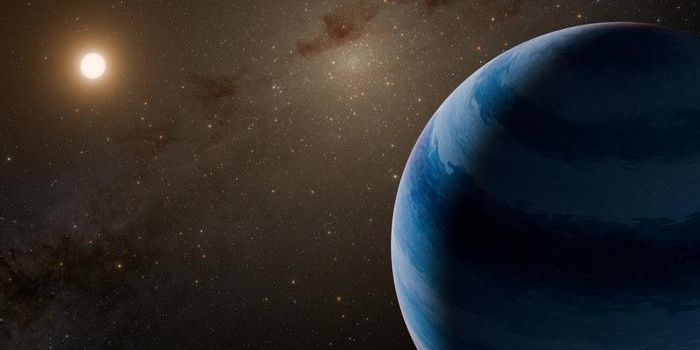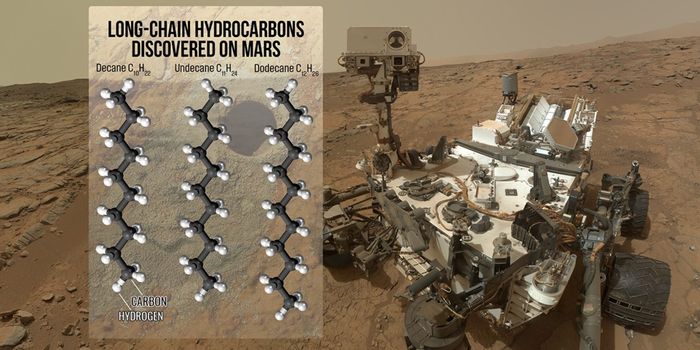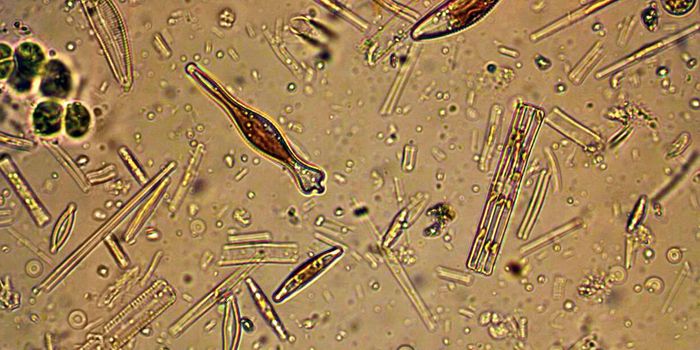Grad Student Highlights: Marc Berghouse (University of Nevada, Reno)
This interview series is focused on the graduate student experience across all STEM fields that allows them to get their research, or corresponding graduate coursework, out in front of a large global audience and share their experiences in graduate school. Our goal is to inspire the next generation of STEM students to pursue graduate studies for a myriad of disciplines, and we hope you enjoy reading these amazing stories! If you'd like to be featured in this series, feel free to send an email to laurence.tognetti@labroots.com, Subject Line: Grad Student Highlights Interest!
Marc Berghouse is a 3rd-year Hydrology PhD student at the University of Nevada, Reno (UNR) where his research focuses on the microbial and fluid dynamics intersection. Berghouse is specifically investigating micro-scale transport of bacteria at various flow speeds and porosities with the goal of upscaling his results to the field scale. He then intends to use reactive transport simulators to model the field scale impact of microbial motility on bioremediation. This comes after earning a BA in Earth Science at Columbia University in 2018 where his thesis work involved studying water quality in New York City, and then afterwards as a part-time Research Assistant at the SLAC National Accelerator Laboratory at Stanford University before beginning his PhD in 2020. Berghouse grew up in the San Francisco Bay Area suburb of Redwood City, where he excelled at fencing and was even a member of the national fencing team when he was only 16. It was fencing that brought him to Columbia where he majored in Earth Science, and the rest is history.
“I have always loved hydrology; it just took me a little while to realize it,” says Berghouse. “When I was a kid I loved playing in rivers, lakes and the ocean. As I got older, I became interested in the physical and chemical properties of water, and when I was in college I got interested in the management and development of water systems. I also liked statistics, so my thesis in water quality came about as a joint interest in water management, water chemistry and statistical analysis. I decided that hydrology was for me after I joined the lab at Stanford. I found all aspects of the work engaging, and I felt like the questions we were trying to answer are truly important. I was also inspired by the skills, work ethic and kindness of the PhD student I worked directly under, Zach Perzan.”
Berghouse says he decided to go to graduate school to continue to hone his skills as an independent researcher. While he enjoyed his work at Stanford, Berghouse says he found his job to be too narrow and longed for greater self-imposed pressure and guidance to achieve his research goals. Berghouse proceeded to email approximately 30 professors, but says he found his current position via a random conversation at AGU 2019 Fall Meeting where he met Dr. Nicole Sund, who was at AGU presenting her work for a project on microbial motility. Berghouse says she put him in touch with Dr. Rishi Parashar, who is now Berghouse’s current advisor at UNR.
“One of the things I like most about the Graduate Program of Hydrologic Science (GPHS) at UNR is the sense of community,” says Berghouse. “All the grad students and professors support each other and have genuine interest in each other’s research and happiness. I also love Reno. It might take a little bit of time to grow on you, but the outdoor opportunities here are practically endless.”
Despite praising both UNR and his program and receiving financial assistance from his parents to help pay the bills during his studies, Berghouse doesn’t shy away from the multitude of challenges that graduate students face today, to include the low salaries, mental health, and discrimination.
“In my experience, a large percentage of grad students receive some support from their parents,” says Berghouse. “Thus, people who are interested in research but are from poor families may be less likely to go to graduate school than wealthy people interested in research. Even those who do receive support from their parents are often struggling to pay the bills and have spending money for things they enjoy. Ultimately, low salaries contribute to lack of diversity and have a negative impact on the mental health of students. Another huge problem that contributes to lack of diversity in grad school is discrimination. Although we would like to believe that as scientists we are above discrimination, this is simply not true, and many geoscience departments around the country are still plagued by discriminatory practices. Mental health is also a big challenge that grad students face. Grad school can be a grueling and lonely experience, and most of the time things do not go exactly as planned. Managing these experiences while producing journal-quality research is an extremely hard task, and for most people it is too much pressure to face alone. Universities should take more steps to ensure that their students are in good mental health, such as offering free therapy. Also, although I have no idea about how to solve this problem, publish-or-perish culture has got to go!”
As far as his post-grad school aspirations, Berghouse says he hasn’t made a firm decision between industry or academia, but does point out the outdated notion that going into industry after your PhD is a negative, stating that industry pays far better than academia.
“The primary draw of academia is that you get to research whatever you want and advise students,” says Berghouse. “In industry you can now also basically research whatever you want, but you get paid much more to do it, and the hours are more reasonable.”
While Berghouse says seeing his career path 5-10 years from now is tough to envision, he has recently taken an interest in medical research due to a study he’s conducting using deep learning to detect breast cancer in mammograms, which he notes is completely different than his current PhD research topic.
“In a perfect world, I would be using my knowledge of microbial motility, fluid dynamics, image processing and deep learning to develop things in the medical industry that will directly help others,” says Berghouse. “I don’t think this job exists yet though, so it might take a while to be in such a position. Until then, I should be happy with any research that is computationally challenging and has what I believe to be a large and beneficial impact.”
As always, keep doing science & keep looking up!











